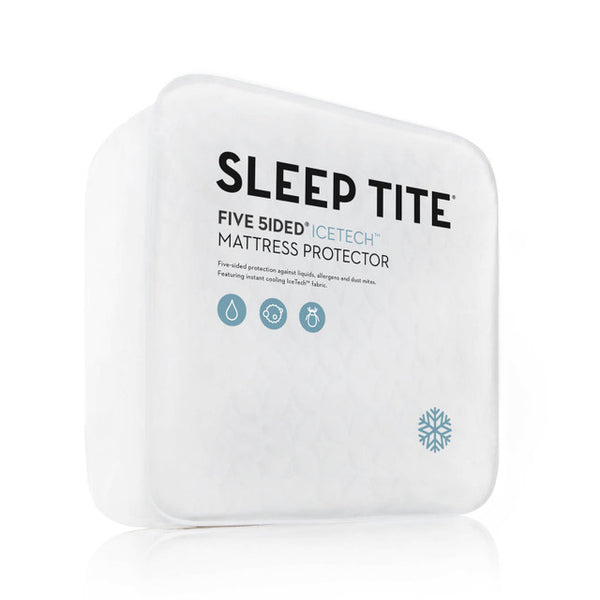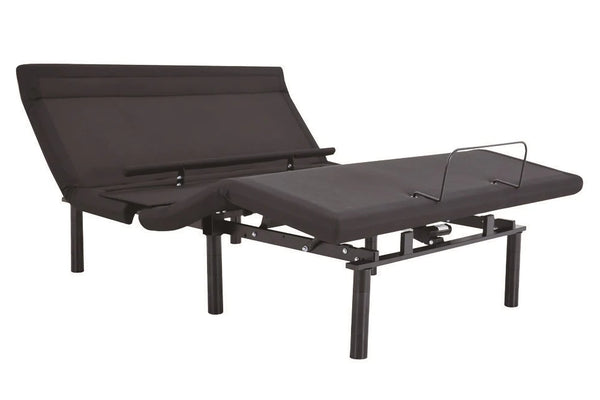
Frequently Asked Questions
1. What is sleep hygiene?
2. Why is sleep hygiene important?
3. How can I create a sleep-friendly environment?
4. What are some tips for managing daytime habits to improve sleep?
5. When should I seek help for sleep problems?
In our fast-paced world, a good night's rest can often feel unreachable. Stressful days, buzzing devices, and irregular routines can disrupt our sleep patterns, leaving us feeling fatigued and unrefreshed. However, understanding the importance of sleep hygiene is crucial for achieving restful nights and optimizing overall well-being. Let's explore the concept of sleep hygiene and how you can incorporate it into your daily routine to ensure you wake up feeling rejuvenated.
What is Sleep Hygiene?
Sleep hygiene refers to a set of practices and habits that are conducive to sleeping well on a regular basis. It encompasses various factors ranging from your sleep environment to your daytime behavior. By establishing a strong foundation of sleep hygiene, you can significantly improve your quality of sleep.
The Importance of Sleep Hygiene
Good sleep hygiene is essential for everyone, regardless of age or lifestyle. It influences not only how quickly you fall asleep but also how deeply you sleep. Research has shown that good sleep hygiene leads to the following benefits:
- Improved mood and emotional regulation
- Enhanced cognitive function and memory
- Boosted immune system
- Reduced risk of chronic diseases
- Better weight management
Establishing a Sleep-Friendly Environment
Your sleep environment plays a crucial role in your ability to fall and stay asleep. Make sure to optimize your bedroom for relaxation. Here are some elements to consider:
Comfortable Bedding
Invest in a good quality mattress and pillows that suit your sleeping position. The right bedding will ensure your body is adequately supported and comfortable throughout the night.
Room Temperature
A cool room temperature, ideally around 60-67 degrees Fahrenheit (15-19 degrees Celsius), helps to lower your body temperature, signaling that it's time to sleep. Adjust your thermostat or use a fan for circulation.
Dark and Quiet
Light can interfere with your body’s natural sleep-wake cycle. Consider using blackout curtains or an eye mask to block out any disruptive light. Additionally, employing white noise machines or earplugs can help maintain a quieter sleep environment.
Setting a Consistent Sleep Schedule
Your body operates on a circadian rhythm, an internal clock that regulates sleep-wake cycles. Keeping a consistent sleep schedule reinforces this rhythm. Consider the following tips:
Regular Sleep and Wake Times
Try to go to bed and wake up at the same time every day, even on weekends. This consistency helps your body understand when it's time to sleep and when to be alert.
Bedtime Routine
Establish a calming pre-sleep routine that lasts about 30-60 minutes. Engage in activities like reading, meditating, or taking a warm bath. These practices can help signal your body that it’s time to wind down.
Managing Daytime Habits
What you do during the day significantly influences your ability to sleep at night. Here are some daytime habits that promote better sleep hygiene:
Physical Activity
Regular physical activity can help you fall asleep faster and enjoy deeper sleep. Aim for at least 30 minutes of moderate exercise most days, but try to avoid vigorous exercise close to bedtime.
Mindful Eating and Drinking
Your diet can also impact your sleep quality. Consider the following:
- Avoid large meals close to bedtime, as they can disrupt sleep.
- Limit caffeine and nicotine intake, especially in the afternoon and evening.
- Be mindful of alcohol consumption, as it can seem to aid in sleep onset but disrupts sleep later in the night.
Exposure to Natural Light
Natural light exposure during the day helps regulate your circadian rhythm. Try to spend time outside during daylight hours or keep your curtains open to let in light while you're at home.
Limiting Electronics Before Bed
In today's digital age, screens play a massive part in our daily lives, but they can be detrimental to sleep. The blue light emitted from phones, tablets, and computers can interfere with melatonin production, making it harder to fall asleep. To promote better sleep hygiene:
Designate a Technology-Free Zone
Create a bedroom environment that is free of electronics. Leave devices in another room or ensure they’re turned off well before bedtime.
Dim the Lights
In the hour leading up to bedtime, dim the lights in your living space to signal to your brain that it’s time to wind down.
Understanding Sleep Disorders
Sometimes, despite our best efforts, we may still struggle with sleep. It’s essential to understand that persistent sleep problems can be indicative of a sleep disorder such as insomnia or sleep apnea. Here’s what to keep in mind:
Signs of Sleep Disorders
- Difficulty falling or staying asleep
- Daytime fatigue or decreased energy levels
- Waking up too early and not being able to fall back asleep
- Loud snoring or gasping during sleep
When to Seek Help
If you notice that poor sleep is affecting your daily life or if you suspect a sleep disorder, it’s crucial to consult a healthcare expert. They can guide you toward the best course of action.
Embracing Mindfulness Techniques
Mindfulness and relaxation techniques can help reduce anxiety and stress, making it easier to fall asleep. Here are some practices to consider:
Deep Breathing Exercises
Engaging in deep breathing exercises can lower cortisol levels and promote relaxation. Try inhaling through your nose for a count of four, holding your breath for four counts, and exhaling through your mouth for a count of six.
Meditation and Yoga
Incorporating mindfulness meditation or gentle yoga into your evening routine can help calm your mind and body. These practices create space for positive thoughts while dispelling the day’s anxiety.
Journaling as a Sleep Aid
Writing down thoughts, worries, or a to-do list can help clear your mind before bed. Use journaling as a way to express your feelings and organize your thoughts, making it easier to fall asleep without intrusive worries.
Your Path to Restorative Sleep
Improving your sleep hygiene takes time and commitment, but the rewards are worth it. It’s about finding the right balance of habits, routines, and environments that promote restorative sleep. Remember, a good night’s rest not only rejuvenates the body but also sharpens the mind and lifts your spirits.
As you implement these strategies into your daily life, be patient with yourself. Every small change can lead to significant improvements in your sleep quality. Ultimately, the goal is to create an environment and routine that works for you, allowing you to embrace the restorative power of a good night’s sleep.









